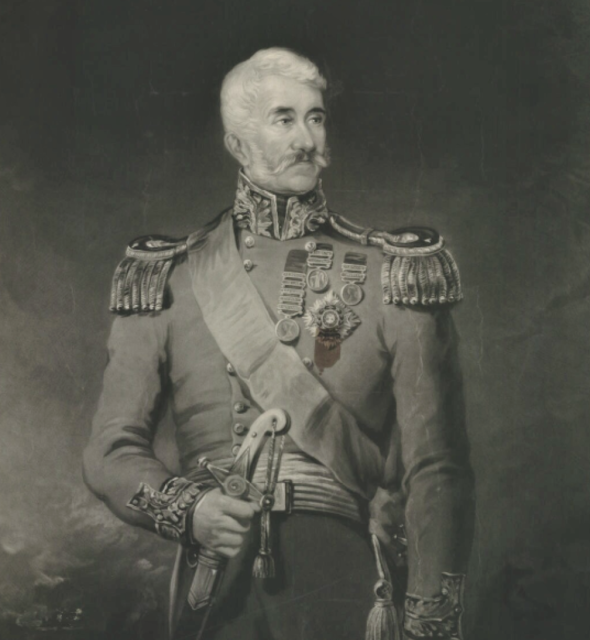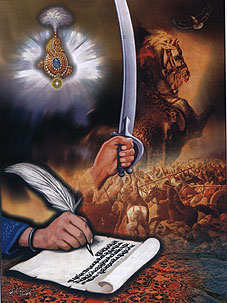
GILBERT, SIR WALTER RALEIGH (1785-1853), divisional commander of the British army under Lord Hugh Gough in the first and second Anglo Sikh wars, son of the Rev Edmund Gilbert, was born in Bodmin, England, in 1785. In 1801, he joined the Bengal infantry as a cadet. He rose to be a major general in 1841, and lieutenant general in 1851. He commanded a division of the army under Sir Hugh Gough in the first Anglo Sikh war, in the battles of Mudki and Ferozeshah in December 1845, and at Sabhraori on 10 February 1846. Hugh Gough eulogized Gilbert`s services in his despatches.
CHANDRA SAIN SAINAPATI, commonly referred to as Sainapati and counted among the "fifty-two poets" of Guru Gobind Singh (1666-1708), was the son of Bal Chand, an educated Man Jatt of Lahore. His original name was Chandra Sain, Sainapati being the pseudonym he had taken. Chandra Sain, taught by one Devi Das, joined the group of Guru Gobind Singh`s poets, and rendered into Hindi verse Chanakya Niti, the well known Sanskrit treatise on statecraft and diplomacy. His Sri Gur Sobha, a versified life sketch of Guru Gobind Singh describing his major battles, the creation of the Khalsa, and events following the evacuation of Anandpur, is a work of much historical value.





